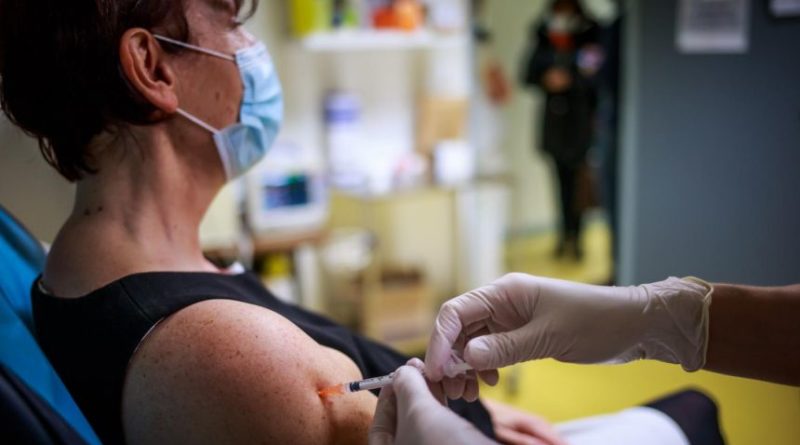COVID-19 VACCINE 101: NEW YORK- Pfizer-BioNTech vaccine appears effective against mutation in new coronavirus variants: Study
The study was conducted on blood taken from people who had been given the vaccine.PHOTO: EPA-EFE
The coronavirus COVID-19 is affecting 218 countries and territories around the world and 2 international conveyances.
NEW YORK (REUTERS) – Pfizer and BioNTech’s Covid-19 vaccine appeared to work against a key mutation in the highly transmissible new variants of the coronavirus discovered in Britain and South Africa, according to a laboratory study conducted by the US drugmaker.
The not-yet peer reviewed study by Pfizer and scientists from the University of Texas Medical Branch indicated the vaccine was effective in neutralising virus with the so-called N501Y mutation of the spike protein.
The mutation could be responsible for greater transmissibility and there had been concern it could also make the virus escape antibody neutralisation elicited by the vaccine, said Dr Phil Dormitzer, one of Pfizer’s top viral vaccine scientists.
The study was conducted on blood taken from people who had been given the vaccine. Its findings are limited because it does not look at the full set of mutations found in either of the new variants of the rapidly spreading virus.
Dr Dormitzer said it was encouraging that the vaccine appears effective against the mutation, as well as 15 other mutations the company has previously tested against.
“So we’ve now tested 16 different mutations, and none of them have really had any significant impact. That’s the good news,” he said. “That doesn’t mean that the 17th won’t.”
Dr Dormitzer noted another mutation found in the South African variant, called the E484K mutation, is also concerning.
The researchers plan to run similar tests to see if the vaccine is effective against other mutations found in Britain and South African variants and hope to have more data within weeks.
Scientists have expressed concern that vaccines being rolled out may not be able to protect against the new variants, particularly the one that emerged in South Africa.
Associate Professor Simon Clarke, a cellular microbiology expert from the University of Reading, said this week that while both variants had some new features in common, the one found in South Africa “has a number of additional mutations” that included more extensive alterations to the spike protein.
The Pfizer-BioNTech vaccine and the one from Moderna, which use synthetic messenger RNA technology, can be quickly tweaked to address new mutations of a virus if necessary.
Scientists have suggested the changes could be made in as little as six weeks.
.


.
Ads by: Memento Maxima Digital Marketing
@[email protected]
SPACE RESERVE FOR ADVERTISEMENT
.
READ MORE:
.
Pfizer-BioNTech vaccine can be quickly modified to combat coronavirus if it mutates

SINGAPORE – The Covid-19 vaccine developed by Pfizer and BioNTech – and currently used in Singapore – can be quickly modified if the virus mutates to the extent that the vaccine is no longer effective against it, said BioNTech’s chief strategy officer and managing director Ryan Richardson.
At present, however, a preliminary study has showed that the shot appears to be effective against the more infectious coronavirus strains that surfaced in Britain and South Africa.
“The technology is very well-suited to quick modifications,” said Mr Richardson, referring to the messenger RNA platform the vaccine uses.

“In a period of weeks, we would be able to produce a new vaccine variant to potentially address a new strain,” he said in an interview with The Straits Times.
BioNTech co-founder Ugur Sahin also told a news conference last month that its vaccine can be adapted in six weeks.
Mutations in the virus refer to random changes in its genetic sequence. These changes can be introduced as the virus replicates – akin to how typo errors are introduced as a text is copied and pasted.

Messenger RNA vaccines such as the ones developed by Pfizer-BioNTech and Moderna – another leading vaccine candidate – involve injecting snippets of the viral genetic sequence into the body to incite an immune response.
“In principle, the beauty of the messenger technology is that we can directly start to engineer a vaccine which completely mimics this new mutation – we could be able to provide a new vaccine within six weeks,” Dr Sahin said last month.
Their assurances come as nations scramble to contain outbreaks of the more infectious strains of the coronavirus which appeared in South Africa and Britain.
According to a preliminary study by Pfizer and the University of Texas Medical Branch published on pre-print site bioRxiv on Thursday, the vaccine appears to be effective against both.
Mr Richardson said during last week’s interview that there is a risk that future variants could challenge the effectiveness of the vaccine, however this is something being closely monitored.
“(Adapting the vaccine) is something that over the longer-term will be an important part of staying on top of Covid-19 and making sure that the mutation does not take us backwards,” he said.
The Covid-19 vaccine by Pfizer-BioNTech is the first and only vaccine to be approved for use in Singapore so far. The first shipment arrived here last month, making the Republic the first nation in Asia to receive the doses.
Asked when other shipments of the vaccine are due to arrive, Mr Richardson said: ” I can say confidently that we plan to send doses throughout 2021.”
Doses will come in instalments worldwide, he said, adding that BioNTech and Pfizer are working to expand capacity. “So I expect that our supply capacity will continue to ramp up throughout the first half of this year,” he said.
He added that even though Singapore is a small market in and of itself, the company sees the country as an “important part of a broader strategic region… namely the neighbouring South-east Asia region”.
“We’re proud that we were the first company to bring a vaccine to Singapore. For us, Singapore is an important region and we plan to establish a presence in Singapore going forward,” he said.












